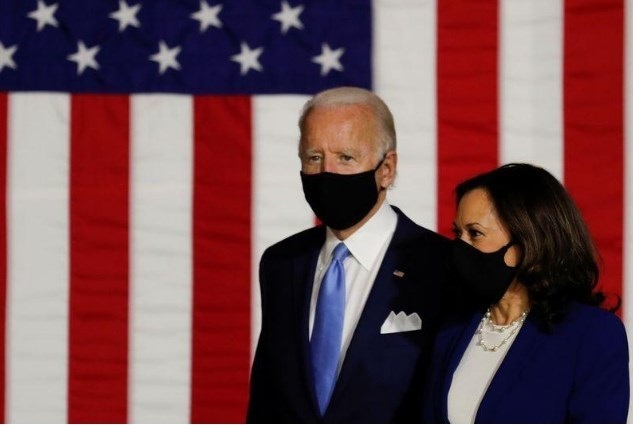(Bloomberg) -- A Democratic sweep in next month’s U.S. election would boost Asian equities, while reducing the allure of the region’s bonds, according to money managers and strategists.
A Joe Biden victory along with Democrats winning control of both houses of Congress is likely to spark substantial fiscal stimulus, benefiting Asian stocks by reviving the U.S. economy and trade flows, according to BNP Paribas (OTC:BNPQY) Asset Management and Credit Suisse (SIX:CSGN) Group AG. Such a backdrop could push Treasury yields higher, curbing appetite for debt from countries such as South Korea and Thailand, historical patterns show.
“The real key is what happens with Congress, more so than what happens with the presidency,” said Daniel Morris, senior investment strategist at BNP Paribas Asset Management in London. “Markets will focus more on the fiscal stimulus as opposed to any big increase in taxes. If U.S. growth improves, they’re going to be importing more from Asia.”
With less than four weeks to go until the election and polls showing President Donald Trump trailing his rival, investors are adjusting portfolio positions. To be sure, many are cautious after 2016’s race, when most pundits thought Hillary Clinton would beat Trump. Fears of a contested or delayed result have sparked demand for volatility trades, such as in yen options, as a hedge.
Vital for Asia will be a dilution of trade frictions under Biden, said Dan Fineman and Kin Nang Chik, analysts at Credit Suisse. They see a reduction in uncertainty currently facing businesses due to the trade war.
In the event that Biden pushes through another round of fiscal aid, an attendant increase in Treasury yields could weaken returns from some emerging-market bonds. South Korean and Thai debt is most at risk, according to data compiled by Bloomberg on 10 developing nations that looks at historical sensitivity to moves in U.S. bonds.
Invesco’s David Chao says a knee-jerk sell-off in the dollar could follow a Democratic sweep of Congress as investors price in trade policy that isn’t as disruptive, as well as less “shrill rhetoric” between the U.S. and China. “Foreign funds would pivot back to EM Asian currencies and assets,” said Chao, a global markets strategist at the firm.
©2020 Bloomberg L.P.
